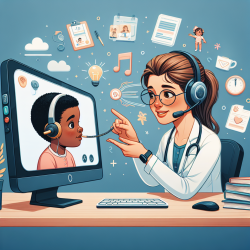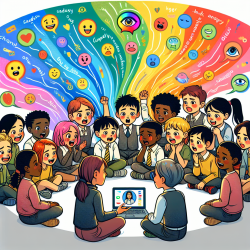Children diagnosed with brain tumors face significant challenges that can impact their neurocognitive and psychological development. As practitioners dedicated to creating positive outcomes for these children, it is crucial to stay informed about the latest research and implement evidence-based strategies. A recent study titled "Neurocognitive and Psychological Outcomes among Children and Adolescents with Brain Tumors: Development of an Observational and Longitudinal Prospective Study Protocol" provides valuable insights that can guide our practices.The study, conducted by Zucchetti et al. (2023), outlines a comprehensive protocol for assessing neuropsychological outcomes in pediatric brain tumor patients at various stages of their clinical journey. The key findings and recommendations from this research can significantly enhance our approach to therapy and rehabilitation.
Key Findings and Recommendations
1. Importance of Early and Continuous Assessment
The study emphasizes the need for early and continuous neuropsychological assessments to detect potential deficits and plan personalized rehabilitation programs. The assessments are conducted at three critical time points:
- At diagnosis and before surgery (T0)
- After surgical removal and before adjuvant therapies (T1)
- One-year follow-up after adjuvant therapies (T2)
By implementing this approach, practitioners can identify and address neuropsychological impairments early, providing timely interventions that support the child's development and recovery.
2. Comprehensive Neuropsychological Battery
The study recommends using a comprehensive neuropsychological battery that includes both direct and indirect assessment tools. This battery should evaluate various domains, including:
- Global cognitive functioning
- Attention and executive functions
- Processing speed
- Memory and visuospatial abilities
- Social cognition
By incorporating these assessments into our practice, we can gain a holistic understanding of the child's neuropsychological profile and tailor interventions to their specific needs.
3. Collaboration and Communication
The research highlights the importance of collaboration among multidisciplinary teams, including oncologists, neuropsychologists, speech therapists, and educators. Effective communication with caregivers and school personnel is also crucial to ensure a seamless transition and support the child's reintegration into their educational environment.
Implementing Research-Based Strategies in Practice
1. Establish a Baseline
Conduct a thorough neuropsychological assessment at the time of diagnosis to establish a baseline. This will help identify any pre-existing deficits and provide a reference point for future assessments.
2. Monitor Progress
Regularly monitor the child's neuropsychological functioning through follow-up assessments. This allows for the timely detection of emerging deficits and the adjustment of rehabilitation programs as needed.
3. Personalized Rehabilitation Programs
Develop personalized rehabilitation programs based on the child's unique neuropsychological profile. Incorporate interventions that target specific areas of impairment and promote the development of new skills.
4. Foster Multidisciplinary Collaboration
Encourage collaboration among healthcare providers, educators, and caregivers. Share assessment results and work together to create a comprehensive support plan that addresses the child's needs in various settings.
Encouraging Further Research
While the study by Zucchetti et al. provides a robust framework for assessing and addressing neuropsychological outcomes, there is always room for further research. Practitioners are encouraged to contribute to the growing body of knowledge by conducting their own studies and sharing their findings. By staying engaged with the latest research, we can continuously improve our practices and create better outcomes for children with brain tumors.To read the original research paper, please follow this link:
Neurocognitive and Psychological Outcomes among Children and Adolescents with Brain Tumors: Development of an Observational and Longitudinal Prospective Study Protocol.










